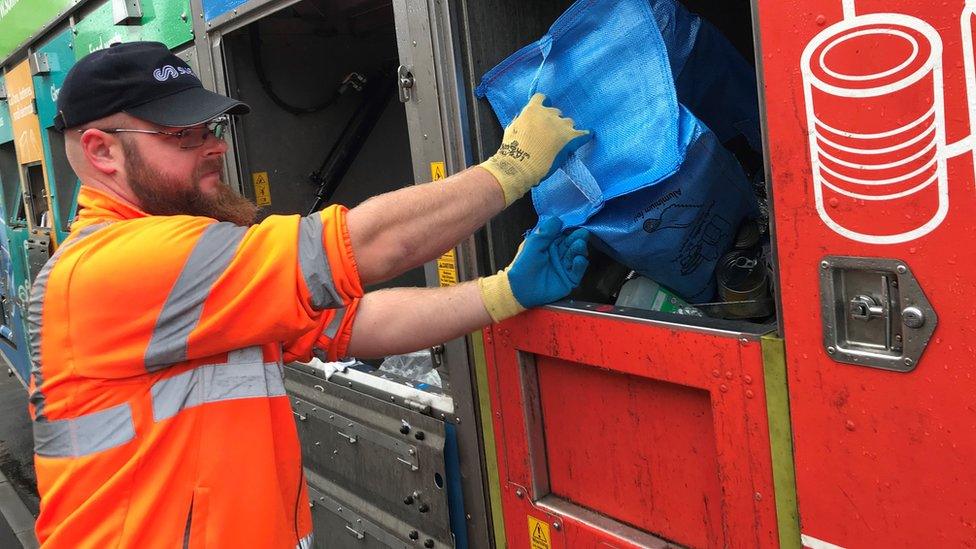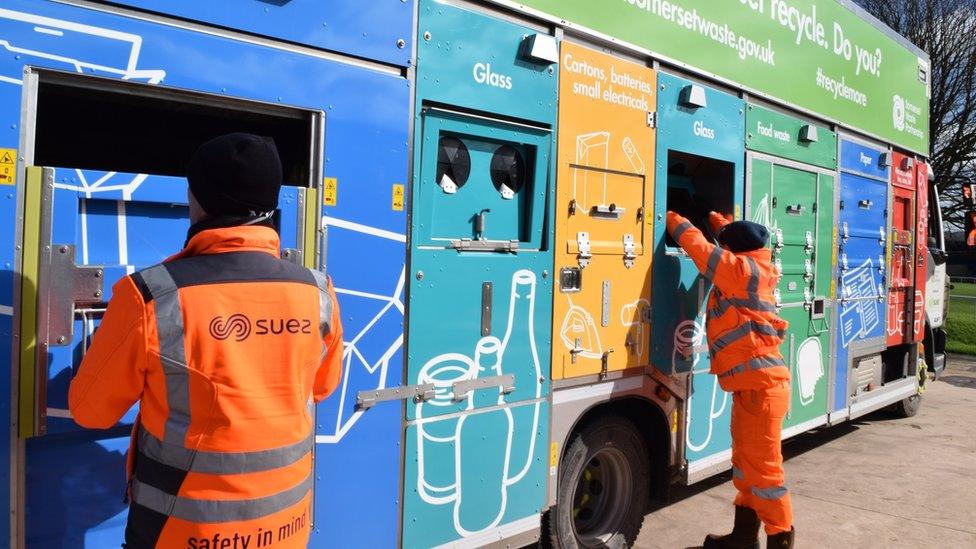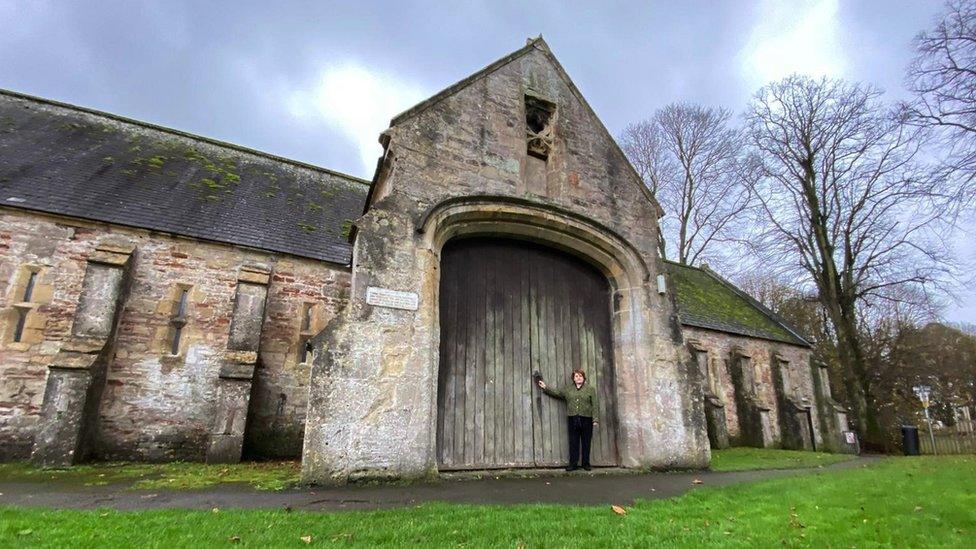Somerset Waste Partnership plans to run bin lorries on vegetable oil
- Published

Somerset Waste Partnership said it will not be a "long-term" solution to cutting its carbon emissions
Bin lorries could end up being run on vegetable oil for a short while in a bid to cut carbon emissions.
The Somerset Waste Partnership (SWP) is looking at ways to replace some of its diesel-powered vehicles with environmentally-friendly alternatives.
Waste bosses announced in late-June that it would spend more than £5.5m replacing 22 waste vehicles.
The company said it was "not a long-term solution" but will help it achieve its goals in the short-term.
The Local Democracy Reporting Service was told of the 22 vehicles which need replacing by 2024, 10 will be replaced with electric vehicles, eight by like-for-like diesel trucks and a further four will be refurbished and redirected to school and communal collections - at a total cost of £5,566,000.
The remaining trucks - which were ordered in 2019 ahead of the Recycle More roll-out - are expected to last until 2030.

The waste company said the expected cost per tonne of carbon it could save is £294
SWP managing director Mickey Green said: "We are currently exploring using hydrogenated vegetable oil (HVO) in our front-line vehicles - either across the contract or at one or more depots.
"This is not a long-term solution (it lowers emissions significantly, but is still based on an internal combustion engine), but it may significantly help us achieve our de-carbonisation goals in the short- to medium-term.
"At current HVO and diesel rates, the expected cost per tonne of carbon saved is £294, which is more cost effective than that achieved by electrification of the fleet."

Follow BBC West on Facebook, external, Twitter, external and Instagram, external. Send your story ideas to: bristol@bbc.co.uk , external
Related topics
- Published9 February 2022
